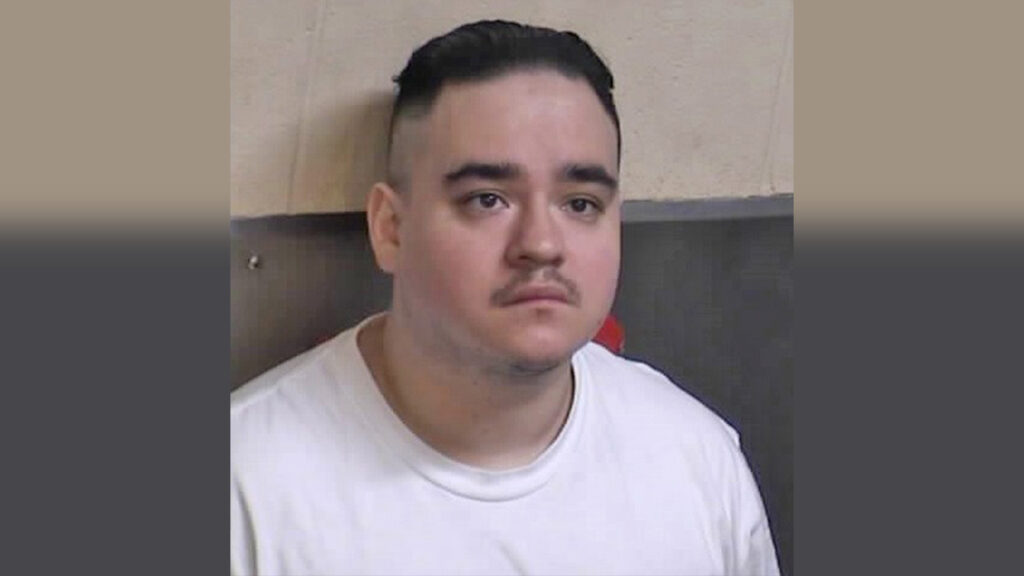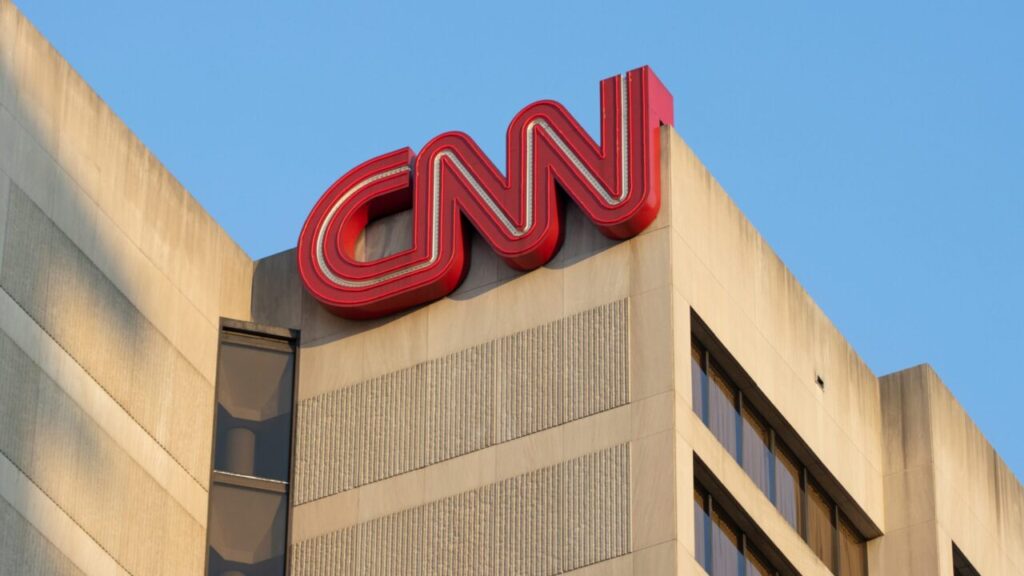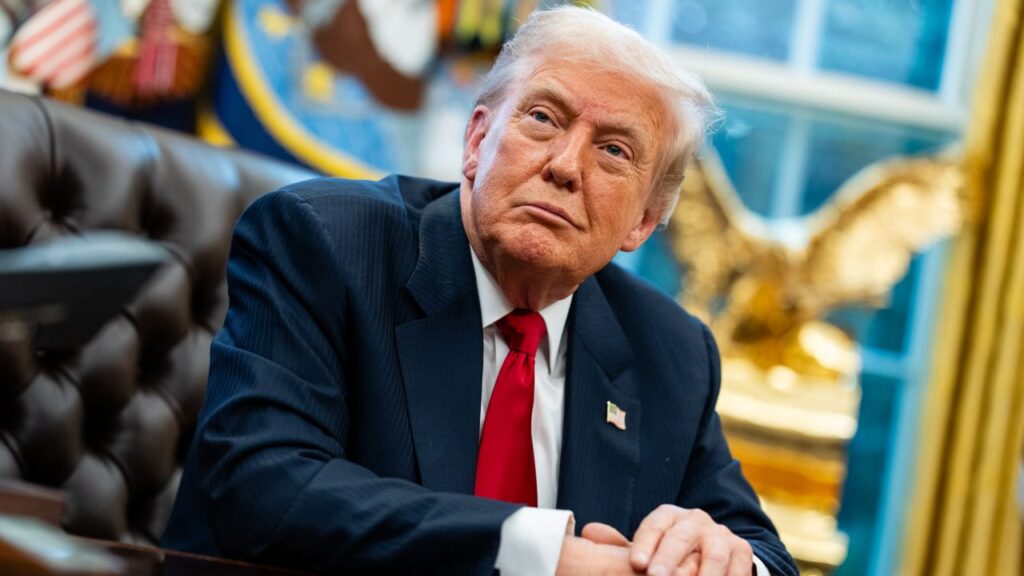Vice President Kamala Harris, the Democratic presidential nominee, boards Air Force Two at the Philadelphia International Airport on Thursday, Oct. 24, 2024. Harris might have traveled on Friday to Philadelphia or Milwaukee for the umpteenth time, but motivating tuned-out voters in battleground states required something different. (Erin Schaff/The New York Times)

- Vice President Kamala Harris joined Beyoncé and Willie Nelson in Houston to spotlight Texas' strict abortion restrictions.
- Harris recorded a podcast interview with Brené Brown, targeting a national audience to amplify abortion rights messaging.
- Both Harris and Trump are prioritizing viral content over traditional battleground-state strategies, focusing on national reach and impact.
Share
|
Getting your Trinity Audio player ready...
|
HOUSTON — Vice President Kamala Harris might have traveled on Friday to Philadelphia or Milwaukee for the umpteenth time, but motivating tuned-out voters in battleground states required something different.
So her campaign engineered a trip to Houston — the largest city in Texas, decidedly not a presidential battleground state — where she would be joined at a rally by Beyoncé and country music legend Willie Nelson, both beloved natives of the state. Their ability to transcend traditional politics, Harris aides hope, will deliver the sort of viral content that cuts through a cluttered media environment.
Harris’ rally in Houston will focus on the strict abortion ban enacted in Texas after the overturning of Roe v. Wade, and is meant to offer a warning about the potential spread of such restrictions to voters in faraway states who will soon decide this year’s presidential election.
Related Story: Harris Calls Trump a Fascist: 6 Takeaways From Her CNN Town Hall
Harris Wants to Show Heart of Texas
In short, the Harris team wants to put what happens deep in the heart of Texas on display for the whole country to see.
“If it takes Vice President Harris to elevate the voices of women in Houston so they are heard in Madison and Kalamazoo and Pittsburgh, that’s what we’re going to do,” said Trey Martinez Fischer, the Democratic leader in the Texas state House.
Just about everything related to Harris’ Houston trip is engineered to create news that will reach voters in the battleground states. Before the rally with Beyoncé and Nelson, she is scheduled to record a podcast interview with popular podcaster Brené Brown, a University of Houston professor and vulnerability researcher who has an audience of millions that skews heavily female.
Harris is following a path traveled recently by former President Donald Trump, who held campaign events in Aurora, Colorado, and Coachella, California, and is set to appear Sunday at Madison Square Garden in New York City. The Trump campaign has not invested in and does not expect to win any of those states, just as Harris is not pretending she has a chance to win Texas.
Trump is planning his own Texas sojourn Friday, heading to Austin to record Joe Rogan’s podcast. He is also scheduled to appear with Sen. Ted Cruz, the Republican who is being challenged by Rep. Colin Allred.
It is the latest evidence that in modern presidential campaigns, viral content in social media feeds is just as desirable as a segment on local TV news in battleground states. Harris aides calculate that those stations will probably end up showing footage of Harris and the music stars anyway.
Related Story: Short on Time, Harris’ Labor Allies Sprint to Reach Working-Class Voters
Harris, Trump Dispensed Flurry of Interviews
Both Harris and Trump have dispensed with what used to be a flurry of interviews that presidential nominees gave to local television stations. Barack Obama, during his campaigns, and Joe Biden four years ago often stacked several local TV interviews in a row to ensure that they had a presence in markets even while traveling elsewhere.
Harris has held a few local interviews, with outlets including Philadelphia and Atlanta television last month, but she has generally focused on platforms with national audiences. Her team believes this makes her appearances more likely to be aggregated and shared beyond the market where an interview aired.
When she appeared this month on two popular podcasts, “Call Her Daddy” and “All the Smoke,” 26% of likely voters heard her speak, according to a poll released this week by USA Today and Suffolk University.
Related Story: Poll: Trump, Harris Favorability Among Lowest in Decades
Then there is the matter of making a national argument about abortion rights, with Texas as ground zero. Harris has used the state’s near-total abortion ban as a cautionary tale in her stump speeches, reminding audiences that physicians face a potential death penalty for providing abortion care that was legal before the Supreme Court’s decision in Dobbs v. Jackson Women’s Health Organization two years ago.
The campaign has used Kate Cox and Amanda Zurawski, Texas women who became high-profile abortion rights activists after they sued Texas over its restrictions, as prominent surrogates who have traveled to other states. Zurawski, who addressed the Democratic National Convention, is among the speakers expected to address the rally Friday.
“There’s no state in the country that is as clear of an example of the devastation millions of women are experiencing post-Dobbs than Texas,” said Skye Perryman, a Texas native who is the president of Democracy Forward, an advocacy group that filed lawsuits against the Texas abortion laws. “These are issues for all people in the country, not just for those who may live in a state that gets particular attention this time of year.”
–
This article originally appeared in The New York Times.
By Reid J. Epstein and J. David Goodman/Erin Schaff
c. 2024 The New York Times Company
RELATED TOPICS:
Categories

Detectives Nab Suspected Fresno Online Predator



















